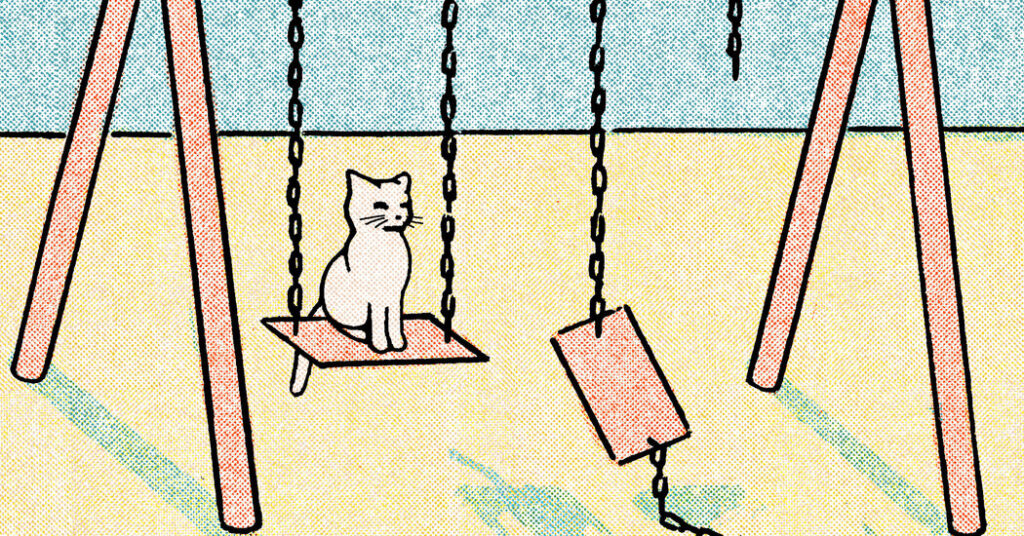[ad_1]
It can still be a meaningful force, to be clear, and to some extent the specter of climate change has given Ehrlichism new life. But the no-kids-because-of-global-warming narrative seems importantly different, less about overpopulation per se and reflecting instead a pessimism about one’s children’s prospects in a warming world. And before giving pride of place to that kind of pessimism in our explanations, it’s worth looking at a different ideological force: Not the anti-natalism of despair, but the anti-natalism of bourgeois propriety.
This kind of anti-natalism isn’t anti-human, it doesn’t panic about teeming masses and polluted cities, it’s fine with people who want kids having kids. But it encourages a belief in family formation as a kind of consumer preference, one option among many, that deprioritizes its pursuit in the crucial decades when having kids is possible or easy. And it sets social expectations in such a way that most people’s understandings of respectability and propriety and good sense end up delaying reproduction, shrinking family size and leaving too many people with unfulfilled fertility desires.
I’ve written before about some these issues, defined by The Atlantic’s Derek Thompson as “workism” — the prioritization of professional success to a degree that inevitably crowds out the space for family life, even when there’s some intention to have kids. Or a prioritization that crowds out the possibility of having more kids, if you have to help your first child thrive in a hypercompetitive workist environment. (Certain accounts of South Korea’s extreme population crisis give pride of place to its insanely competitive meritocracy.)
This, more than Ehrlichian anti-natalism, is what I see when l look around my own social ecosystem — though it takes different forms for different social classes. In the Financial Times interview, Finland’s Rotkirch emphasizes the professional-managerial script in which having kids is a kind of a capstone achievement, something you only do after you’re completely set, which means after you’ve spent years climbing the ladder of graduate programs and professional advancement that leaves you with a relatively narrow family-formation window. Which for some is OK because they really don’t feel like having kids at all — but for others it leads to this kind of depressing anecdote:
“People call me a lot in Finland. [They say] ‘I’m 42, my partner has had three miscarriages and she says she will not continue. And I understand I will never be a father. I’m the only child of my parents, and there’s nobody left, and help me.’”
Rotkirch is wary of an emphasis on fertility treatments. Women’s fertility drops in their late 30s and 40s: society has to adapt. “If you do everything that typical ministers of finance tell you to do, you are 45 — you have a house and a doctorate and it’s too late. The idealized life course is really at odds with female reproductive biology.”
But I also see another version of bourgeois anti-natalism, less upper-class professional and more middle-class, where people get married relatively early, have a kid or two and then just assume that a larger family would be impossibly burdensome and therefore fundamentally irresponsible. These are people whom I expect will feature in Tim Carney’s forthcoming book on the cultural impediments to raising kids in America, not just having them — people who like children, who like being parents, who inhabit the middle class of the richest country in the history of the world, but for whom current norms and expectations and even regulations (those hulking car seats!) around parenting militate strongly against having three kids instead of two, four instead of three, two instead of one.
It’s especially worth emphasizing these bourgeois problems because they transcend ideology and partisanship. If you meet someone who’s convinced that overpopulation is about to overwhelm the Earth or that climate change will visit apocalyptic horror upon future generations, you’re probably talking to a convinced progressive. But the impulse to delay fertility until some perfect moment of being “settled,” to recoil from the mess of an unplanned pregnancy, to restrict child rearing to the narrowest possible window, to get a responsible vasectomy after your second child is born — these are often conservative impulses, woven into the fabric of the American heartland as much as the liberal coasts.
[ad_2]
Source link

